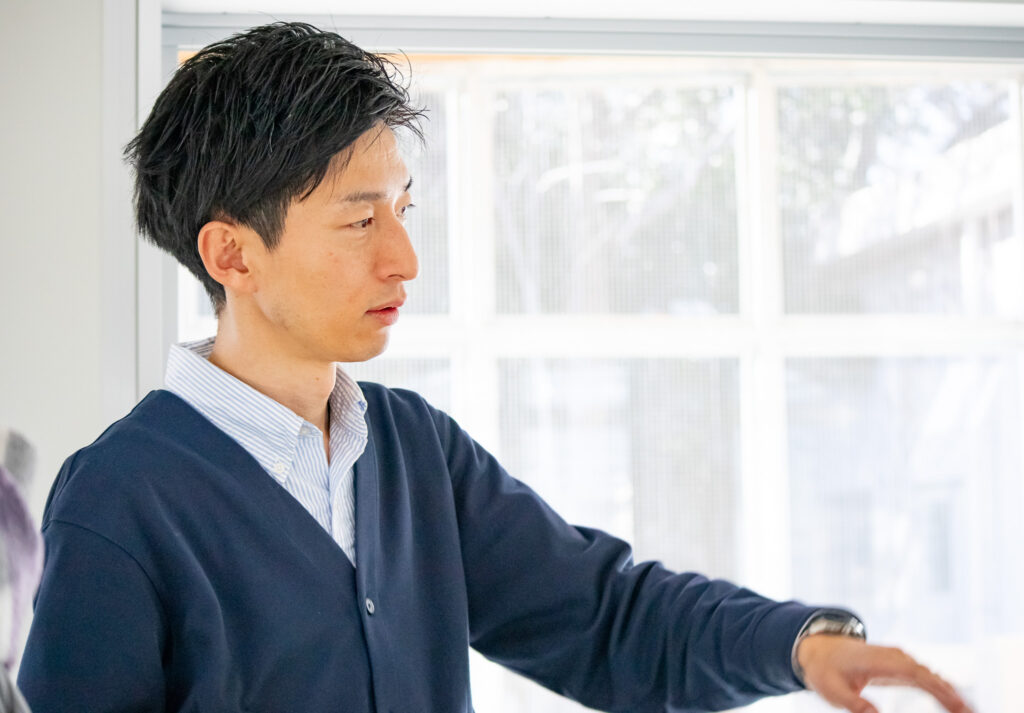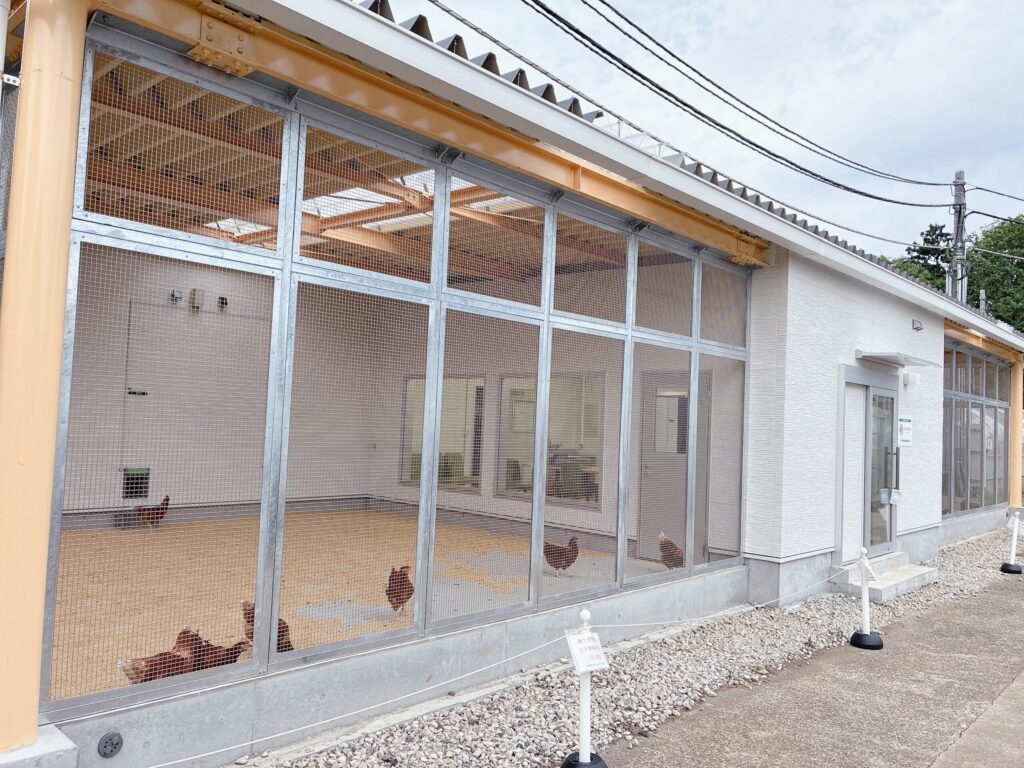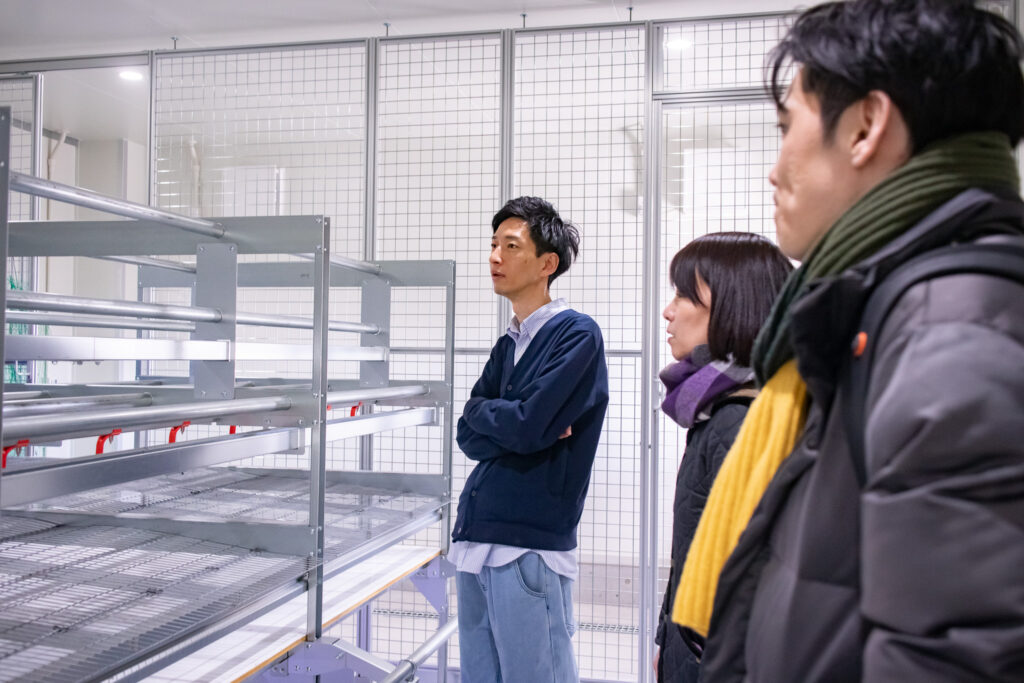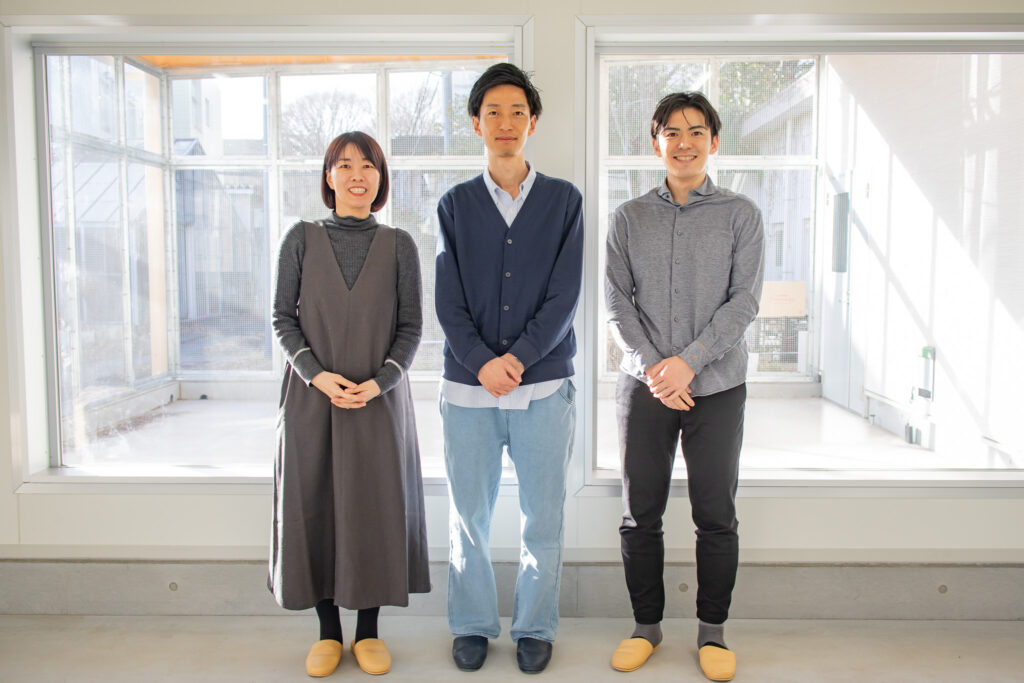Animal Welfare
06/20/2025

Since 2023, Professor Tsuyoshi Shimmura, who serves as an advisor to Lively, has been actively involved in promoting animal welfare in Japan while teaching in the Department of Animal Science and Biotechnology at the Faculty of Agriculture, Tokyo University of Agriculture and Technology.
In the first part of this interview, Professor Shimmura shared the journey that led him to become a researcher, as well as details about his current research themes. In the second part, we’ll dive into the story behind the creation of Unshelled, a next-generation, animal-welfare-focused model facility for laying hens, and explore the educational programs being carried out in collaboration with Lively.
Tsuyoshi Shimmura
Professor, the Graduate School of Agriculture at Tokyo University of Agriculture and Technology
Tsuyoshi Shimmura graduated from the School of Veterinary Medicine at Azabu University and earned his Ph.D. in Veterinary Science from the same university’s graduate school. Since his student days, he has consistently pursued research in animal welfare and animal behavior.
Currently, he leads a research group specializing in Systemic Behavioral Biology and Animal Welfare Science at Tokyo University of Agriculture and Technology. He is dedicated to realizing the concept of “One Welfare,” which recognizes the interconnected well-being of animals, humans, and the environment.
With Lively, he has been involved as an advisor since 2023. Sharing a common vision and a passion to give back to animals, he works alongside the team, striving to co-create new value.

After many years of researching animal welfare, I’ve had the chance to hear a wide range of perspectives—from producers, consumers, researchers, companies, and government bodies. Some people say, “Caged systems are better because they’re cheap and high quality,” while others believe, “Free-range systems are better because they let hens live more freely.” But these views often remain one-sided and don’t really connect with one another.
Some consumers are not aware of how the eggs they eat every day are produced. This made us feel that there should be a place where people can learn about animal welfare and talk about it together, which inspired us to create Unshelled.
Simply saying, “Let’s improve animal welfare!” or just listening to a variety of opinions isn’t enough to bring about real change in society. What’s truly important is bringing together people who care and creating a space where meaningful dialogue can begin.
In Japan, about 94% of poultry farms still use caged housing systems, so switching to cage-free systems that prioritize animal welfare involves significant costs. One of the goals of Unshelled is to demonstrate the value and benefits of such systems to both producers and consumers—benefits that can outweigh the disadvantages.


The design of Unshelled was inspired by Rondeel in the Netherlands. Although the Netherlands is known for its leadership in animal welfare, both caged and cage-free systems are still used. What impressed me was how egg production is opened to the public, allowing many different people to visit and helping the country think together about animal welfare.
Inspired by this idea, we created Unshelled in Japan. By opening the facility to visitors, we hope to encourage more people to think carefully about animal welfare in Japan.
The biggest difference is that Unshelled includes caged systems, while Rondeel does not. From an animal welfare perspective, cage-free systems are the better choice. However, in order to maintain stable egg production, caged systems are still necessary.
Since it’s still unclear what direction Japan should take going forward, we felt it was important to encourage discussion. That’s why Unshelled was designed to showcase four different rearing methods: conventional cages, enriched cages, multi-tier aviaries and free-range systems / barn systems.

The idea for this collaboration began when Ms. Miura from Lively took one of my classes through a graduate school exchange program. That connection led us to start planning an experiential educational program together at Unshelled.
After doing this interview, I’m once again reminded that the team at Lively shares a similar vision and approach when it comes to animal welfare. It really feels like we’re moving in the same direction.
At first glance, promoting animal welfare might seem like an entirely positive goal—but for producers and consumers, there are real risks involved, especially in terms of cost. It’s a topic that can easily trigger negative reactions, like “Why should we even care about animal welfare?”
Even so, I truly believe that working toward animal welfare is a good thing, and that by viewing it in a positive light, we can begin to see the world differently. In my lab, we refer to this concept as “One Welfare”—the idea that improving the welfare of animals also contributes to human well-being and helps us build a more sustainable planet.
That’s exactly why I feel so aligned with the Lively team. They share this same vision, and it’s what makes me excited to move forward with them on this project.

To start, we hope to raise awareness of Unshelled among people who are already interested in animal welfare—such as those in the food industry and the media. In recent years, we’ve received more and more inquiries from companies saying, “We want to adopt animal welfare practices, but we don’t have enough information,” especially in response to growing pressure from overseas consumers and animal welfare organizations.
We want Unshelled to serve as a platform for raising awareness and sparking discussion about animal welfare here in Japan, while also becoming a place that connects people and animals. We also hope that consumers will come and visit Unshelled. I’d love for it to be part of early childhood education, encouraging people—especially children—to think about hens and eggs as a familiar part of their daily lives.
The name Unshelled was inspired by the shell of an egg. It conveys the image of something uncovered or transparent. I chose it with the hope that visitors could see laying hens living freely and comfortably in a highly transparent facility—and that this place would break through existing systems and help create new ideas. Although Unshelled is a facility for laying hens, our research doesn’t stop with hens. We aim to improve the welfare of many different animals.
I encourage everyone to start thinking about animal welfare in their everyday lives. Whether you’re buying eggs or meat at the supermarket, visiting a zoo or aquarium, or playing with a pet at home—please take a moment to consider the well-being of animals.
These days, more consumers are becoming interested in how vegetables are grown and where they come from. But when it comes to eggs and meat, that level of awareness is still quite low. Consumer behavior has the power to drive change in society. So I hope people will take that first step—by choosing to learn.

The connection between Professor Shimmura and Lively Co-CEO Tomomi Miura traces back to a class on Animal Production Science at Tokyo University of Agriculture and Technology. The way the class thoughtfully explored the relationship between animals and humans brought back memories of a childhood dream—a world full of kindness, where no boundaries exist between people and animals.
Looking back, one phrase beautifully captured that feeling: “The world we want to see is the one we want the next generation to see.” This line was born from the overflowing passion of one of our founding members, then a graduate student, and it remains one of Lively’s most cherished values today. The encounter with Professor Shimmura deeply moved us and stayed with us ever since.
Meeting every two weeks, we’ve collaboratively designed and developed an educational outreach program focused on animal welfare. Supported by a diverse team of specialists and nonprofit organizations promoting animal welfare, we’re proud to share that after two years in the making, in May 2025, our experiential educational program for organizations and groups officially launched at Unshelled.
Through this initiative, we hope to help society better understand, embrace, and deeply integrate the value of animal welfare in livestock farming. We warmly invite you to visit and experience firsthand what it means to reconsider sustainable food systems by connecting with the emotions of hens and the lives they lead.
Together with Professor Shimmura, we look forward to welcoming you.
Interview date: February 13, 2025
Ryoko Nishi / Writer & Photographer
Tomomi Miura / Lively